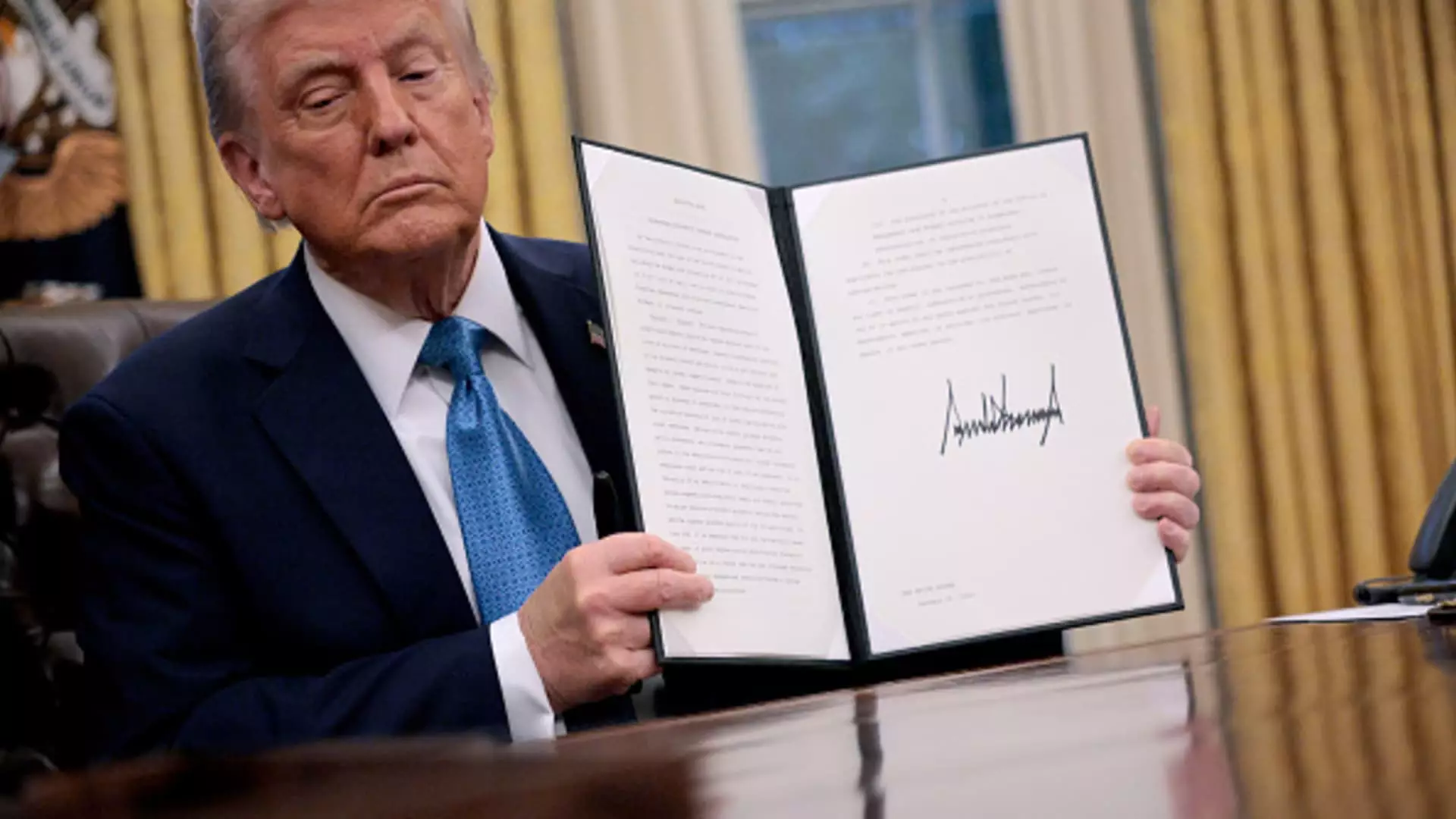The recent decisions made by President Donald Trump regarding trade policy are sending ripples across the U.S. stock market and beyond. With the implementation of hefty tariffs, particularly targeting goods from Mexico, Canada, and China, an air of uncertainty looms over various industries. These moves, which many view as initiating a potential global trade war, pose serious questions about the implications for American businesses, international relations, and the overall economy.
On the first day of the new tariffs, the stock market faced a significant backlash, especially affecting sectors that rely heavily on robust international supply chains. Industry giants spanning automotive, retail, and manufacturing saw their shares plummet as investors recalibrated their expectations. Financial institutions such as Goldman Sachs predict that the adverse effects of these tariffs could lead to a substantial drop in U.S. stock values, estimating a 5% decline linked to anticipated reductions in corporate earnings. This forecast not only highlights the precarious balance of the market but signals a pressing need for businesses to adapt swiftly to the evolving trade landscape.
The automotive sector stands out as one of the most vulnerable to the ramifications of these tariffs. Companies like General Motors, Ford, and Stellantis, which have intricate manufacturing plans that cross North American borders, could be compelled to alter their operational strategies drastically. With new costs added to transporting parts and materials, a shift in production methods may become essential. Such maneuvering could lead to increased domestic manufacturing, yet at the cost of efficiency and, potentially, consumer prices.
Retail sectors, notably those involved in importing alcohol, face a bonafide backlash. Constellation Brands, a prominent liquor importer, is already seeing the ramifications reflected in its stock performance. Canada’s response to U.S. tariffs threatens to pull American products from its shelves, signaling the retaliatory nature of these economic measures. Meanwhile, businesses like Chipotle and Calavo Growers that rely on Mexican imports for staples like avocados might be grappling with increased purchase costs, ultimately impacting their profit margins and pricing strategies.
The sportswear industry is also bracing for turbulence. Brands such as Nike and Lululemon, heavily reliant on imports from China for materials, may see profit structures altered as tariffs increase their operational costs significantly. Compounding the issue is the potential backlash against these brands within the Chinese market, where negative sentiment toward U.S. policies could result in declining sales. Such correlations illustrate how intertwined modern global economies have become, where decisions made in one country reverberate through markets worldwide.
Budget retailers, known for their low-priced imports, are particularly at risk. Stores like Five Below and Dollar General, which source a substantial portion of their merchandise from China, may struggle to maintain profitability under the weight of increased import tariffs. Stripped of their competitive pricing advantage, these retailers could see a decline in consumer traffic and trust, further aggravating the economic predicament.
Moreover, transportation and logistics companies such as Union Pacific and Norfolk Southern find themselves in jeopardy. With new tariffs halting the flow of goods, their core revenue streams are in jeopardy. A reduction in freight transport correlates directly with diminishing profits, thereby creating a feedback loop that adversely affects operational health.
In the realm of e-commerce, the cessation of the “de minimis” trade provision—which enabled low-value items to be shipped into the U.S. duty-free—presents further challenges. Online retailers like Temu and Alibaba’s AliExpress may find their business models undermined, reducing the affordability of their offerings and, as a result, diminishing their competitive edge in the market.
The trade policies initiated by President Trump are sparking widespread concern among various industries, reflecting a precarious economic environment. As tariffs disrupt markets, companies face the dual challenge of managing immediate financial impacts while devising long-term strategies to navigate this unpredictable terrain. Adaptation will be key, as businesses strive to maintain profitability amid a shifting landscape that promises to test the resilience of the U.S. economy.

